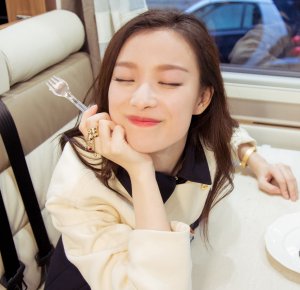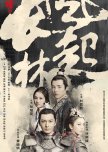One of the recurring themes in this drama is how children are different from their parents and how they shouldn't aspire to be exact versions of their parents but should instead carve their own paths. In a way, this could also be applied to the drama itself. Nirvana in Fire is considered by many to be one of the best dramas and with that comes high expectations but also in my opinion, unfair expectations to be another version of its predecessor. What I mean by this is that I've seen people wanting another drama to be led by a highly intelligent character as he methodically matches wits with similarly intelligent characters in the quest to clear his family's name. However, I am for one glad that the writer decided to switch lanes and attempt something entirely different while also touching on themes from the first Nirvana in Fire such as justice, brotherhood and family.
One of the interesting themes this drama examines is the collision between tradition and modernity. It is clear that the times are indeed changing throughout the kingdom and country. Many of the characters that will soon wield a great deal of power are young in age. In response to this, a lot of the adult characters seem reluctant to relinquish their power and do no trust that the youth are equipped to lead. Some of the adult characters even have no issue in manipulating the younger characters for their own personal petty reasons.
On the other hand, you had characters like Pingjing and Feizhan who were free to and encouraged to explore life outside the palace to acquire new knowledge/perspective. Similarly, there's an acknowledgement that women in particular lived harsh lives within the palace. Often, they had their lives set out for them with no say in the manner. Girls as young as 12 were sold and expected to be servants. It is expected that women put their fathers/husbands first and live to serve them. However, there are characters like Qian Xue who is a formidable fighter in her own right and has a husband who accepts that she may be an outlier but loves her all the same. There's also Lin Xi, who has her own aspirations and hopes to make a positive contribution to the world even if it's not ready to accept them from a woman.
Even though I empathized with Mei Changsu, I also liked following the journey of a more "human" character like Pingjing. In the beginning of the drama, we meet Pingjing as he is living his life carefree at Langya Mountain. A world away from what awaits him if he has to follow in his father/brother's footsteps and assumes his role in the Chang Lin Army which is more strict and rigid. It takes him a long time to adjust and he is constantly reprimanded by his father and brother but it's necessary because what he is fighting for is bigger than him. Above all us, I appreciated the fact that Pingjing just wanted the option of being able to choose to live his life the way he wanted to. Much like how the two main characters are strong in their own right but also having overlapping qualities, the two dramas should be appreciated on their own merits. If you go with wherever the wind takes you, especially if it takes you to Chang Lin (sorry), you'll be rewarded with what I consider to be one of the best dramas.
One of the interesting themes this drama examines is the collision between tradition and modernity. It is clear that the times are indeed changing throughout the kingdom and country. Many of the characters that will soon wield a great deal of power are young in age. In response to this, a lot of the adult characters seem reluctant to relinquish their power and do no trust that the youth are equipped to lead. Some of the adult characters even have no issue in manipulating the younger characters for their own personal petty reasons.
On the other hand, you had characters like Pingjing and Feizhan who were free to and encouraged to explore life outside the palace to acquire new knowledge/perspective. Similarly, there's an acknowledgement that women in particular lived harsh lives within the palace. Often, they had their lives set out for them with no say in the manner. Girls as young as 12 were sold and expected to be servants. It is expected that women put their fathers/husbands first and live to serve them. However, there are characters like Qian Xue who is a formidable fighter in her own right and has a husband who accepts that she may be an outlier but loves her all the same. There's also Lin Xi, who has her own aspirations and hopes to make a positive contribution to the world even if it's not ready to accept them from a woman.
Even though I empathized with Mei Changsu, I also liked following the journey of a more "human" character like Pingjing. In the beginning of the drama, we meet Pingjing as he is living his life carefree at Langya Mountain. A world away from what awaits him if he has to follow in his father/brother's footsteps and assumes his role in the Chang Lin Army which is more strict and rigid. It takes him a long time to adjust and he is constantly reprimanded by his father and brother but it's necessary because what he is fighting for is bigger than him. Above all us, I appreciated the fact that Pingjing just wanted the option of being able to choose to live his life the way he wanted to. Much like how the two main characters are strong in their own right but also having overlapping qualities, the two dramas should be appreciated on their own merits. If you go with wherever the wind takes you, especially if it takes you to Chang Lin (sorry), you'll be rewarded with what I consider to be one of the best dramas.
Was this review helpful to you?























